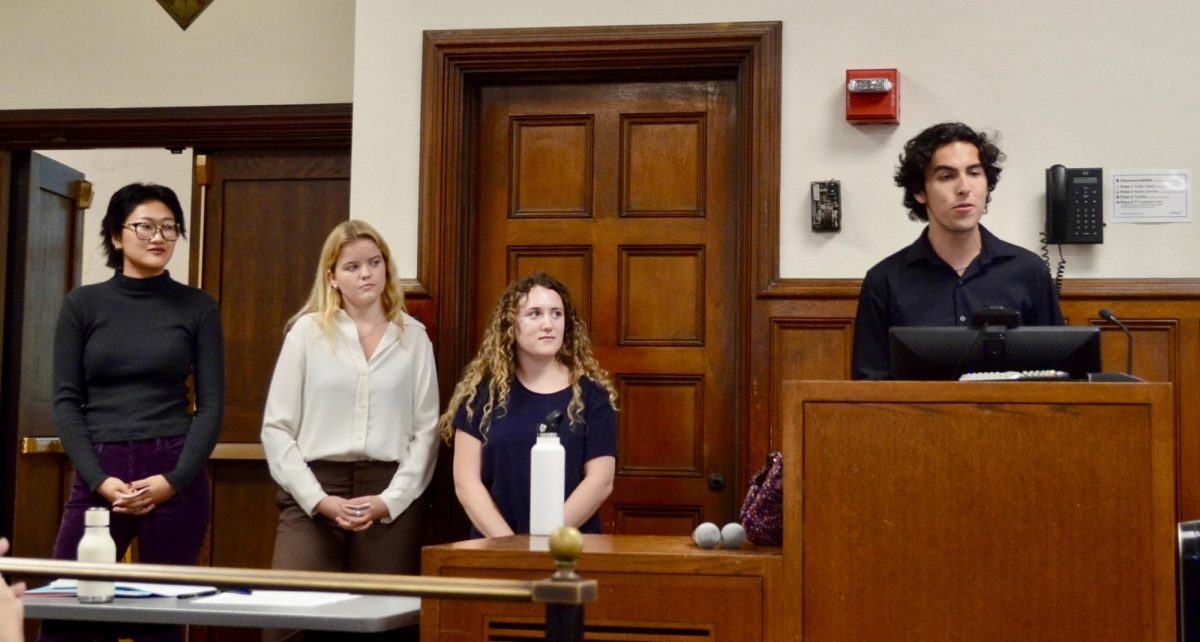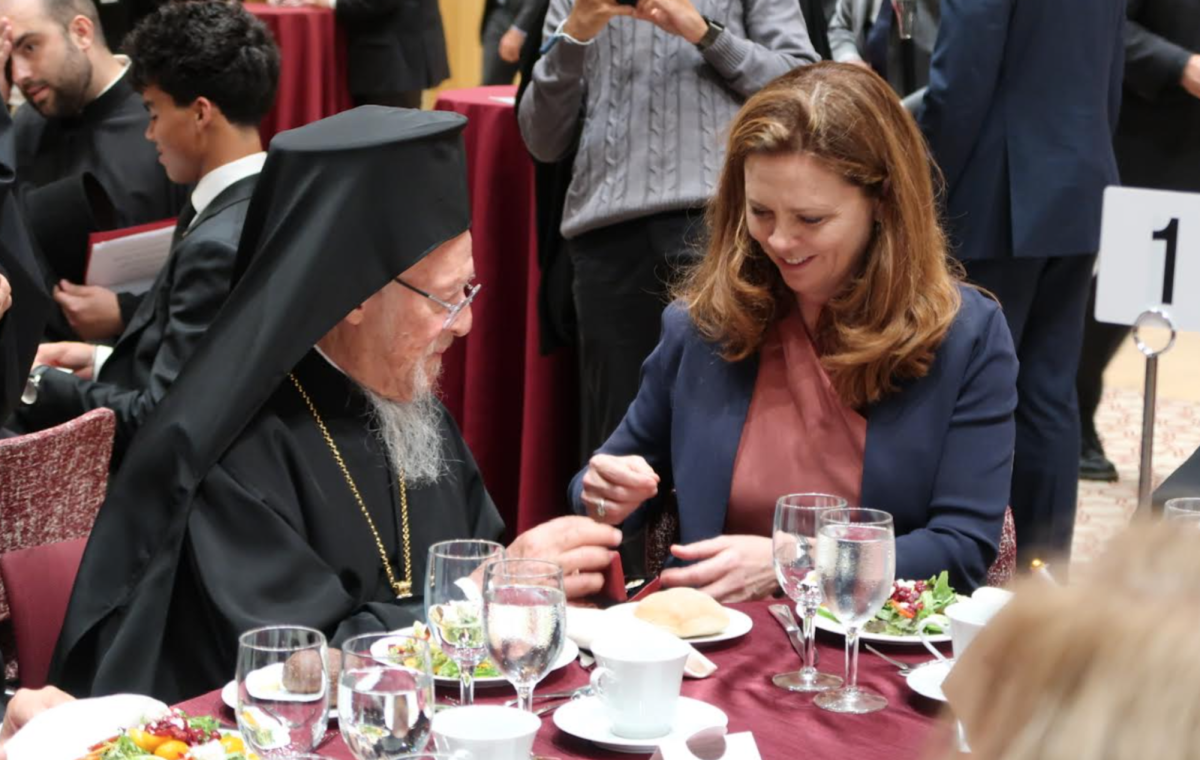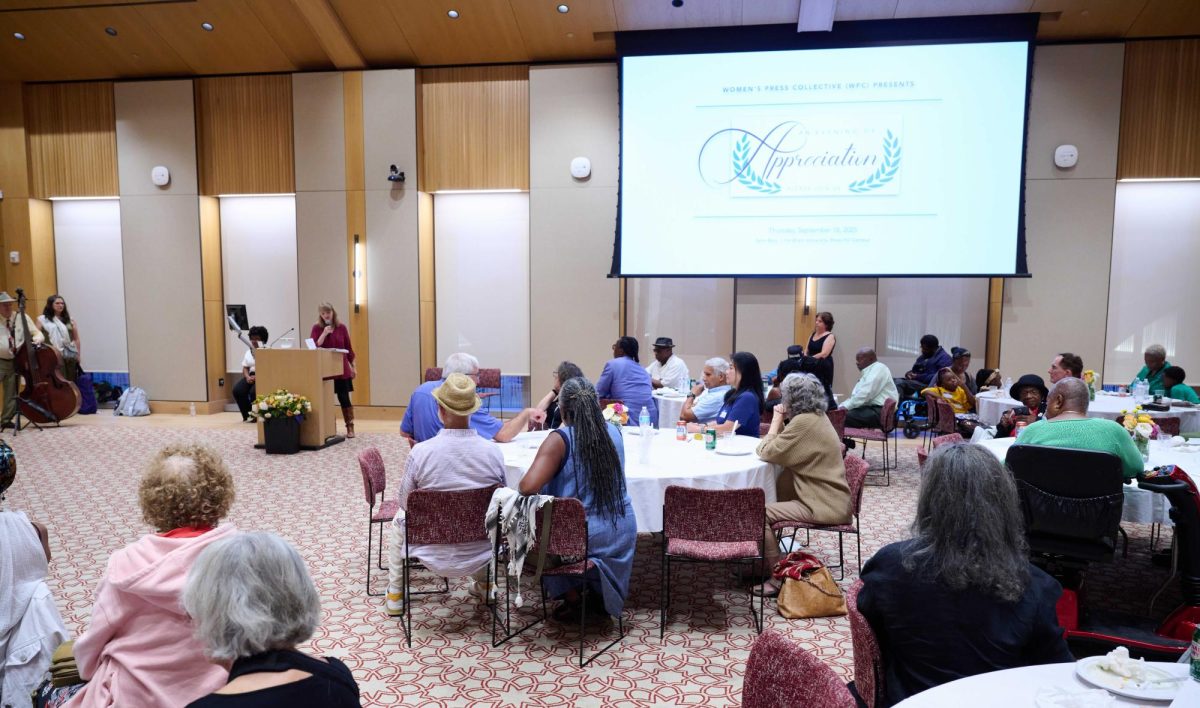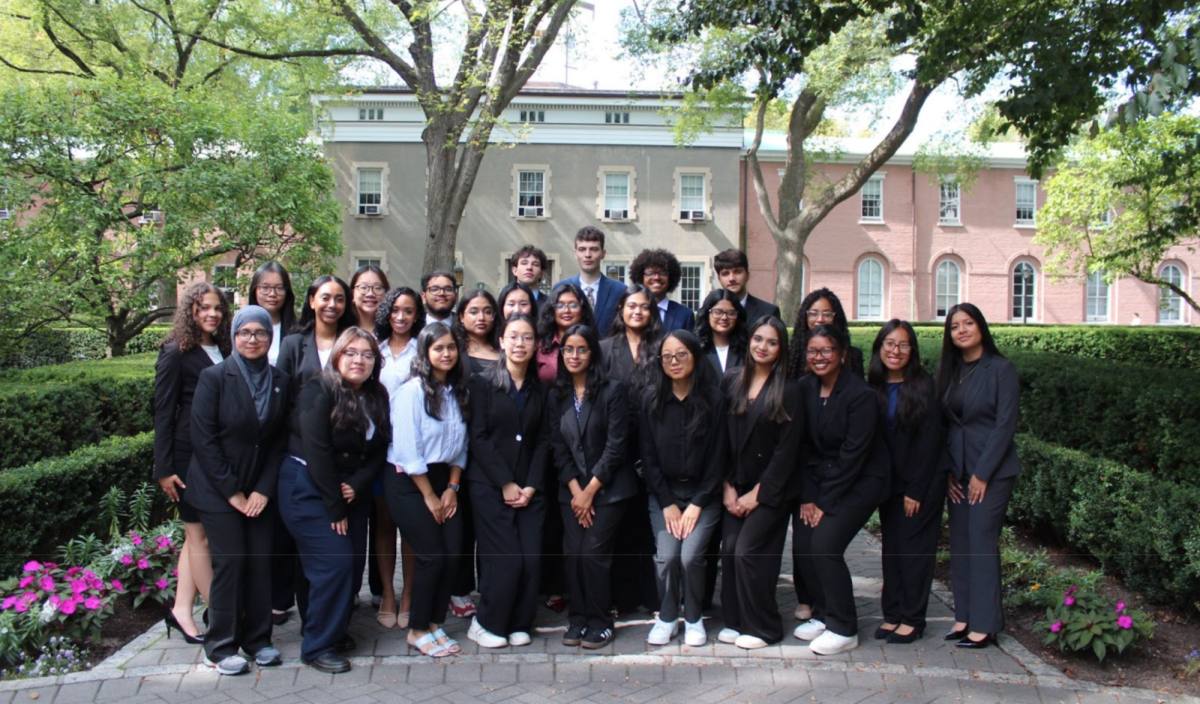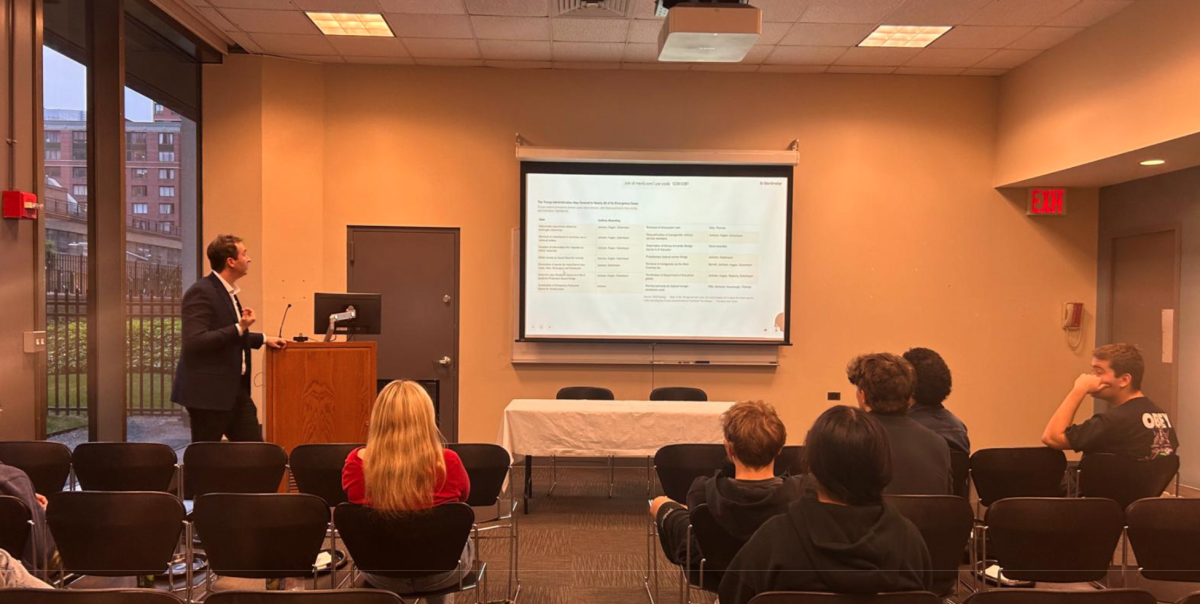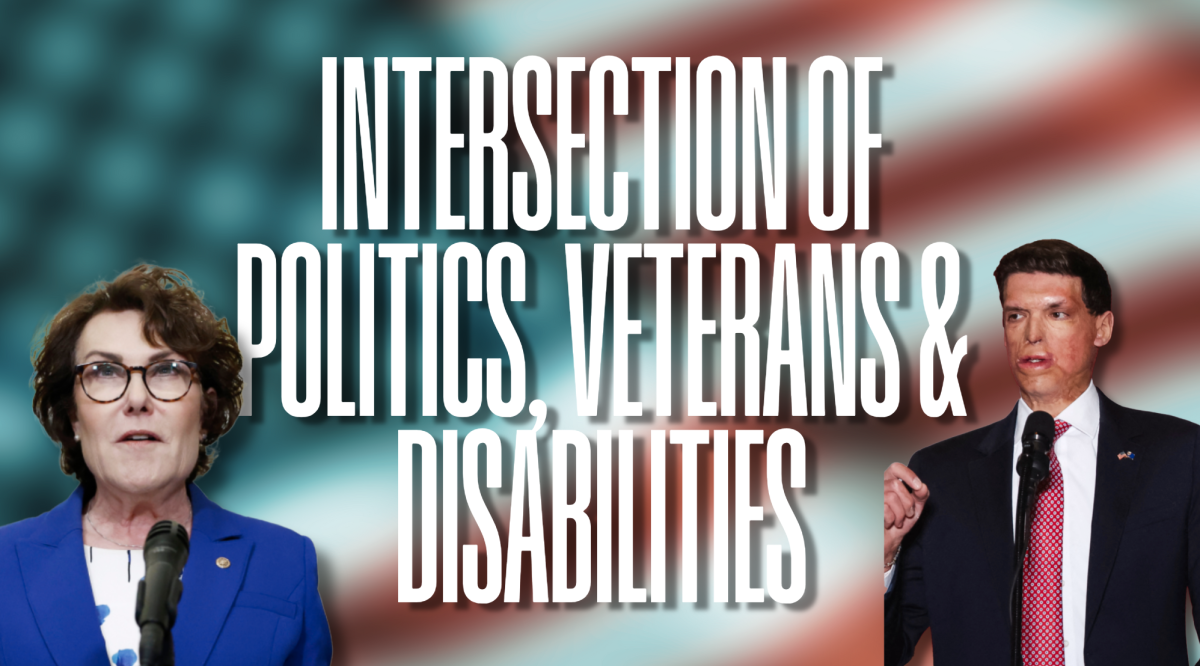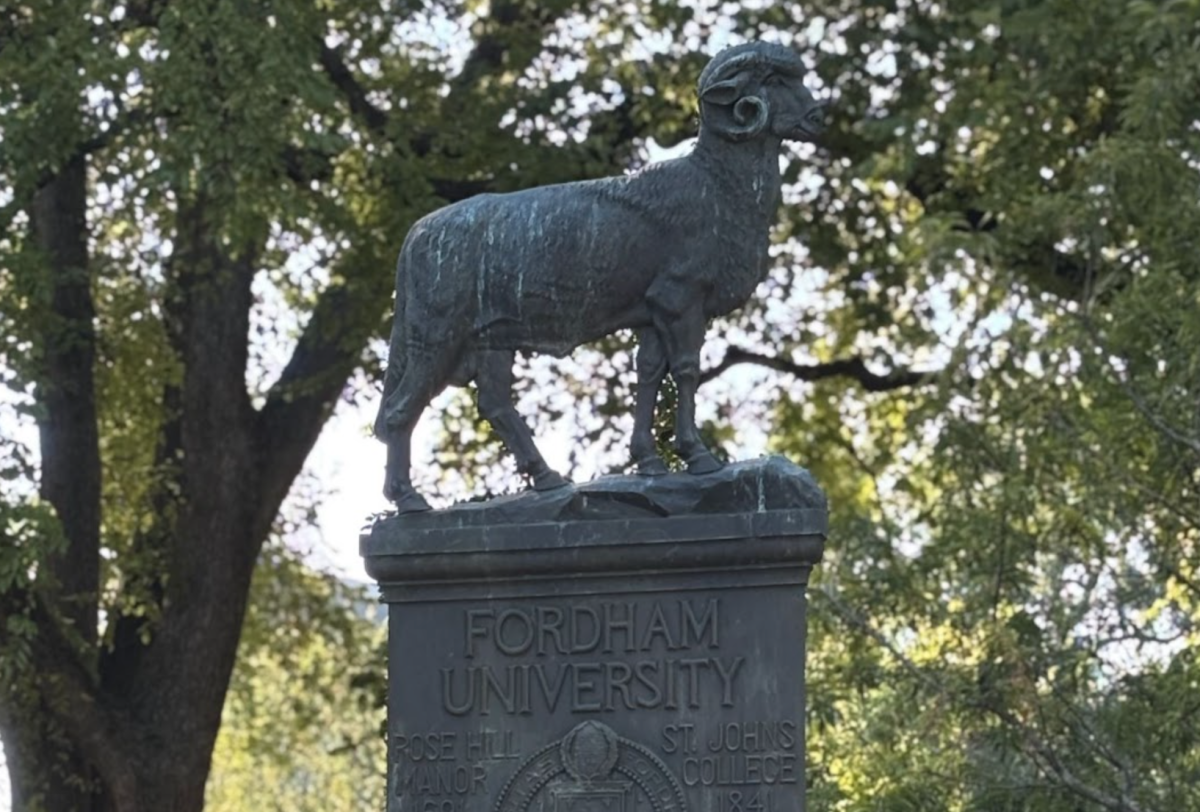The Artificial Intelligence (AI) at Fordham Club hosted an event titled “What’s The Point of College?” on Oct. 2 in the McShane Campus Center’s Great Hall. The event was the club’s first of the semester and was an interactive discussion about why students choose to attend college and how AI plays into those reasons.
Moderated by Margaret Konkel, senior director of the Center for Educational Innovation, the discussion reflected the unease among students and some university educators about how AI is affecting their future.
The club aims to bring students and faculty together to talk about AI at Fordham University, its impact on the education system and hear student perspectives with open dialogue.
Sean Huynh, FCRH ’27, the vice president of the AI at Fordham Club, thinks it is important for students to talk about AI. “The ones that refuse or don’t want to talk about it are the ones we need talking about it most,” Huynh said.
Some students who attended had expected a more technical discussion of AI. Blake Zucco, GSB ’28, believes that learning the technical side of AI is important. “It’s becoming very prevalent in the school,” Zucco said. “I think I just need to get to learn it better because it’s the future,” Zucco added.
Other parts of the discussion surrounded the prevalence of AI in the job industry and the continuing benefits of a college education. “With AI, now you can simply get [a] job without a degree,” Huynh said. “We have to remember that the point of college isn’t strictly to get a job. There are other parts of it that make it valuable.”
Tony Wang, GSB ’26, echoed this sentiment. “For the U.S. … a good college is actually a big source of finance, income, or money flow … in this economy,” he said.
Konkel then rebutted this statement and said she “could argue that you can have a really good working life without a college education.”
Some attendees said they believe that colleges need to do more to address all of the possible drawbacks of AI. Alexa Henderson, GSB ’26, said that seeing how AI is “going to affect current students as they graduate [is] an issue Fordham and other colleges haven’t fully addressed yet.”
Michael Peppard, a professor in the theology department, then brought up the definition of knowledge. “I think … university professors should be experts on what knowledge is,” Peppard said. “Ideally, like how knowledge is produced and how knowledge is generated in the act of educating. And I think that sadly … universities are not leading, I think we’re behind.”
Peppard’s statement is not to say progress is not happening, however. Jack O’Brien, GSB ’27, the president of AI at Fordham, said that the Fordham administration has been working “with students like us to adapt to AI, but it really is something that we’re actively working on together and hoping to see some results come to fruition in the coming months and years.”
Regarding student AI usage, “a lot of it really does depend on the individual student,” Huynh said. “How they’ve developed their own ethics, morality on using the technology.”
Konkel said AI usage in classrooms is currently “a one-by-one, classroom-by-classroom kind of experience.” Fordham has not figured out a university policy on AI use in classrooms yet, but “there’s been a lot of conversation about [it],” Konkel said.
Peppard then said his own response to Generative AI was to change his curriculum. Peppard shared, “I decided to change everything, which was sad.” He has re-introduced oral exams and “a lot of in-class speech and debate … I try to have assignments that are either full AI or no AI and eliminate the muddling middle ground,” which he said is “where the worst education is happening right now.”
Peppard also said that it would be difficult for higher education institutions, such as Fordham, to create an AI policy due to the fast and consistent new technological developments occurring in the AI industry.
Konkel then continued on to describe the ever-changing technology as a “wicked” problem.
“Things that formulate the problem are inherently in conflict with one another,” Konkel said.
Fordham’s challenge may not just be addressing AI, but ensuring its Jesuit mission continues in a world that values efficiency over ethics. “What we want Fordham to do,” Huynh said, “is to be able to prepare us as humans first and foremost.” He said the university should help students become “critical thinkers and problem-solvers” while keeping in touch with the “moral component of the Jesuit values that has made Fordham so successful over its 175-plus years of existence.”
Konkel asserted this same belief. “It’s that connection between, like, mission and action and outcome,” Konkel said. “Human outcome is specific and unique to the Jesuit tradition here.”
The AI at Fordham Club is a place for open dialogue about difficult conversations. “Whenever people talk about AI, it gets philosophical very quickly,” O’Brien said. “We’re hoping that that’s a component of our club that people can engage with; something that they’re maybe missing out on in their usual classes … It’s an open club to all levels and all uses, ethical or unethical.”







































































































































































































